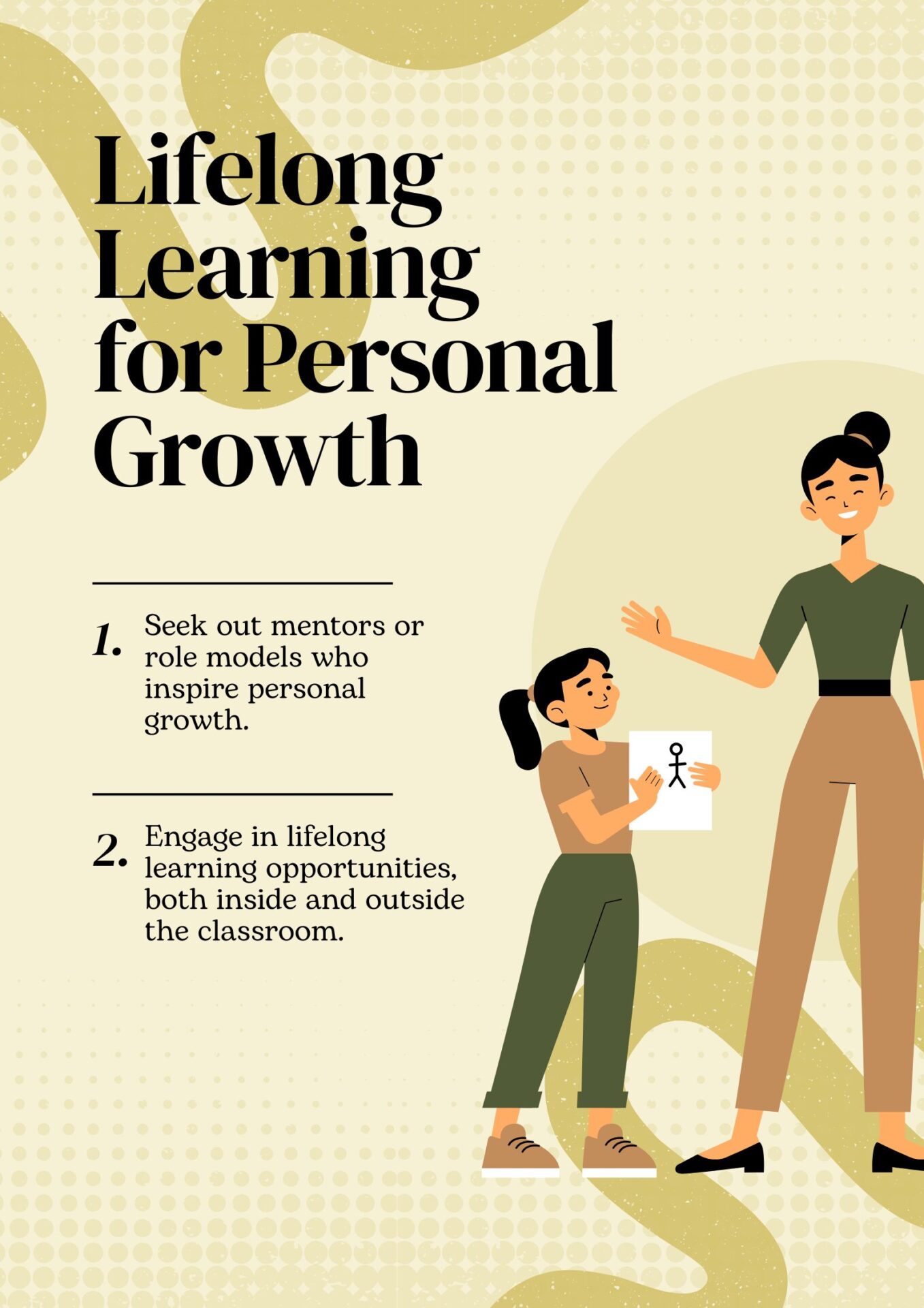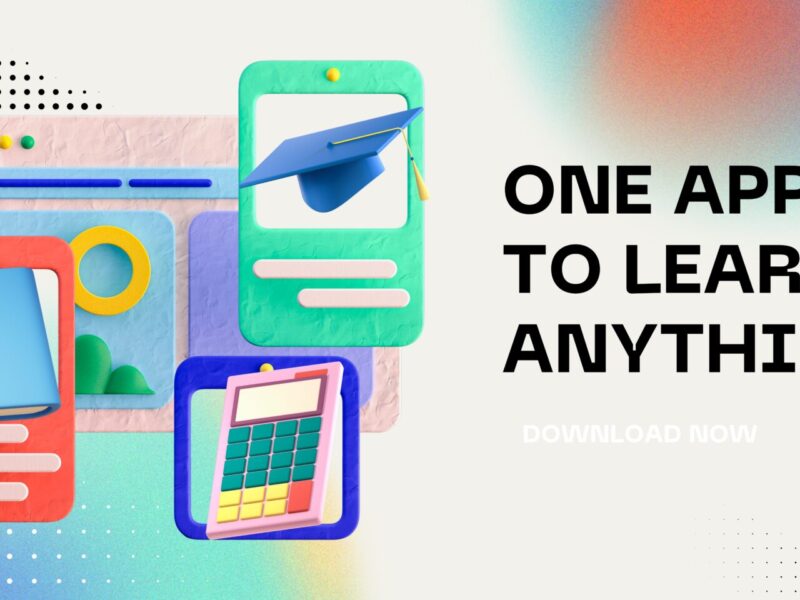It has become almost a mandatory part of life to study lifelong in today’s fast-changing and fast-moving world. Education is no longer confined to time as the door to formal schooling closed or college years. The digital age has revolutionized the way people access, consume and apply knowledge, so today it is much easier to learn continuously. Lifelong learning is no longer a personalized affair, but part of a very necessary and competitive fulfilled life in a fast-changing techno-globalized world.
The intention of this article is to provide a clearer elaboration for lifelong learning in this digital age, its importance, benefits, tools, challenges, and strategies for a successful process.
1. Knowing all about Lifelong Learning
What Is Lifelong Learning?
Lifelong learning is defined as the voluntary and continued pursuit for personal or professional development. It means people can acquire such learning because of formal learning, informal learning, and outside experiential opportunities, including online courses, self-directed research, workshops, and real-life experiences.
The newly emerged digital age exhibits the potential for life learning made with technology that encourages anytime, anywhere learning of the individuals. From MOOCs (Massive Open Online Courses) to educational apps and virtual reality, it is now possible to learn outside the four walls of traditional classrooms.
2. Lifelong Learning in the Digital Age: The Imperatives
Adjust Rags as Technology Perspectives Change
The Fourth Revolution-Both AI and complete automation as well as big data-will end up changing all aspects of regular life near or far down the road. Hence, lifelong learning provides a mechanism through which an individual can update himself with these trends and, therefore, be relevant in his career.
It is by navigating the changes associated with a career setting. The life span such skills have is short within the digital age, and the worker needs to reskill up, if possible, always. Life-long learning, for example, allows one to change industries or roles.
3.Nurturing Oneself for Innovation and Creativity
Continuity in learning fosters creative thinking, innovative, and problem-solving skills essential for a moment of thriving in highly competitive knowledge economies.
4.Making Your Life Better and Increasing Personal Well-Being
Perfect life learning: Brace the eyes large enough to critically see things as constructs-changes perception-wise, affects one’s ability to think critically, and builds confidence. Mental agility through other forms of education in early life keeps one realizing the growing risk of cognitive decline in aging.
5.The Contribution of Technology to Lifelong Learning
Platforms of Learning Online- The popular courses in Coursera, Udemy, and edX are a few examples of websites that have democratized education through providing affordable or free courses that come from the top professors and professionals in the world.
Mobile Learning
There are learning apps for subjects such as languages-Duolingo-or math and science, Brilliant-facilitating learning on the go, scheming it into the busy life of most working people.
Artificial Intelligence (AI)
By tracking the movement of a user, patterns are identified in the learning processes to which the learning environments and content adjust. AI tutors such as those from Khan Academy ensure that learners internally master all the components of a single concept before even letting them proceed into replacement concepts.
6.Virtual Reality (VR) and Augmented Reality (AR)
Technology’s evolving nature contributes highly to hybridized learning where learners immerse themselves in real-life scenarios without having to be physically present, especially for those in medicine, engineering, and the arts. They can now practice in realistic but virtual environments.
Social Media and Networking
As for personal opportunities for informal learning, networking, and sharing knowledge, these would be the platforms like LinkedIn, YouTube, and even Twitter.
7.The Digital Age Benefits of Learning for Life
Access
There is no longer a barrier to geography, no cost or time barriers anymore for students to reach information almost anywhere in the globe via the internet.
Different Methods of Learning
From programming to digital marketing, from cooking to personal embellishment, these can be topics for students to research according to their own preference.
Community Building
Students around the world can connect through online forums, discussion groups, and social media, thus increasing collaboration and shared experience.
Flexibility
Currently, some students have managed to combine their studies with other activities, including work and family, thanks to modular education and self-paced courses.
8. Key Tools for Lifelong Learning
Massive Open Online Courses (MOOCs)
Coursera: Courses of leading universities and certification in technology, business, and arts.
edX: Programs of institutions such as Harvard and MIT.
FutureLearn: Provides short courses and career certification.
Educational Apps
Duolingo: A platform to learn new languages.
Khan Academy: Provides school-level themes in mathematics, science, humanities.
Skillshare: Deals with creative skills, such as graphic design and photography.
Podcasts and Audiobooks
Audible, Spotify, and Apple Podcasts offer easier learning while being on the go.
YouTube Channels
CrashCourse, TED-Ed, Vsauce, and others, add fun to learning on just about anything.
9. Lifelong Learning Challenges
Information Overload
The sheer volume of digital material causes a kind of helplessness in students such that focusing on an individual goal becomes nearly impossible.
Digital Divide
There is a difference between people concerning technology accessibility, and those in most rural or economically down-market areas have less or no opportunity for continuous learning.
Motivation and Discipline
Self learning does not just require commitment, but consistency which is hard really without a structured guidance.
Credibility of Sources
The internet is covered thoroughly with misinformation, and it would be up to the learners to discern and identify the worthy from the unworthy source.
10. Strategic approaches to learn throughout life
Make Sure to Set Tangible Goals
Set clear goals about what you want to accomplish, whether it’s learning an entirely new skill, moving forward in your career, or also -just to name a couple-exploring a passion.
Plan Time for Learning
Set aside specific times for learning, even if they are for only 15 to 30 minutes daily.
Use Technology Wisely
Have specific reputable platforms and tools to make them help with learning and make the task easier.
Interacting with Communities
Join forums, discussion groups, or local workshops to enable yourself with collaborative work in your learning.
Cultivating a Desire to Learn
Find out what opportunities are available to assess progress regularly and seek the feedback or opinions of others, including peers or mentors.
Curious Minds are Always Learning
Adopt a growth mindset by being receptive to new ideas and challenges.
11. Lifelong learning relevant to different cohorts
Professionals
Continuous education is what keeps one alive as a career, for example, fields of data science, cybersecurity, and digital marketing require constant updating of knowledge.
Retirees
Lifelong learning keeps the mind of the retirees always engaged and reduces the social gap of the retirees. For example, Senior Planet offers a wealth of digital literacy courses designed specifically for seniors.
Students
Students get the benefit of online resources for enhancing their knowledge, given, even during formal education.
Parents
It is within the reach of the parents to learn the kind of skills that would make their children more successful in school, and sometimes to learn by just going online for their personal interests.
Lifelong Learning and Future Workforce 9-Prepare Automation-Transitioning Incorporated Lifelong Learning
Careers become obsolete with the arrival of automation, but life-long learning ensures moving to different roles that demand creativity, critical thinking, and technical expertise-the attributes or qualities most relevant in the 21st century.
12.Remote Work and Digital Skills
There are emerging trends in the workplace such as proliferation of remote work, making digital communication, project management, and collaboration tools now more than ever relevant.
Diverse Knowledge
Professionals should combine health with data analysis and marketing with coding all those sectors are being craved by employers.
13. Life-changing Examples of Lifelong Learners
Bill Gates
He reads quite a bit though he has sufficient reflection to not be a successful billionaire.
Malala Yousafzai
She still studies at Oxford University even after becoming an international education advocate.
Elon Musk
Musk is known for his projects and constantly creating new ventures in different areas; he became adept through books and online resources in learning rocket science and programming.
14. Lifelong Learning and Global Impact
Bridging Education Gaps-the role of the digital platform
In underserved communities, it leads to empowering and building individual and social mobility.
Drive Innovation
Through continuous learning, the speed in developing innovative solutions becomes even greater, thus helping heal the world in areas such as climate change or health inequalities.
This is the 12th phenomenon
The New Lifelong Learning Along with its ability to transcending the threshold of technology and humanity, this new phenomenon offers lifetime learning into daily activities. This includes adaptive artificial intelligence, immersive virtual environments, and gamified experiences that redefine learning.Policies and infrastructure designed by governments and organizations must be invested so that such learning becomes more equitable in opportunities.
Thus, in itself, while the phrase addresses lifelong learning in this digital world, it cannot be termed a trend. It is imperative for society in survival mode, fast changing at levels previously unimaginable. Individuals can reach their full potential and contribute significantly to humanity by discovering entry into such lives. All the tools and opportunities are available for the taking.


